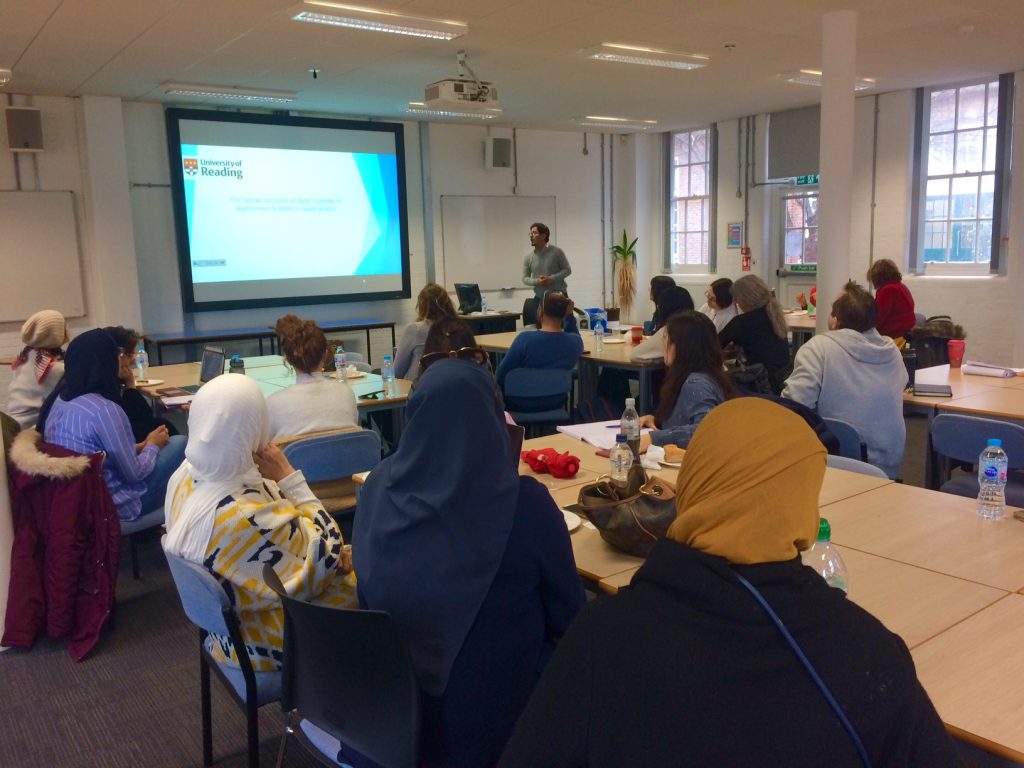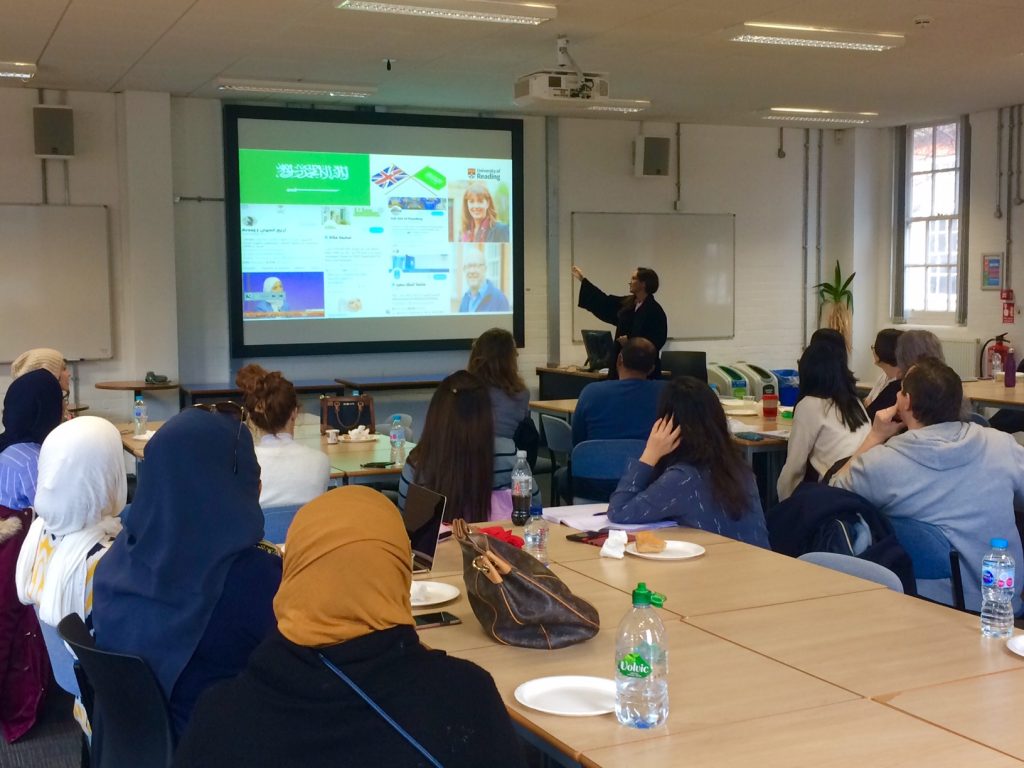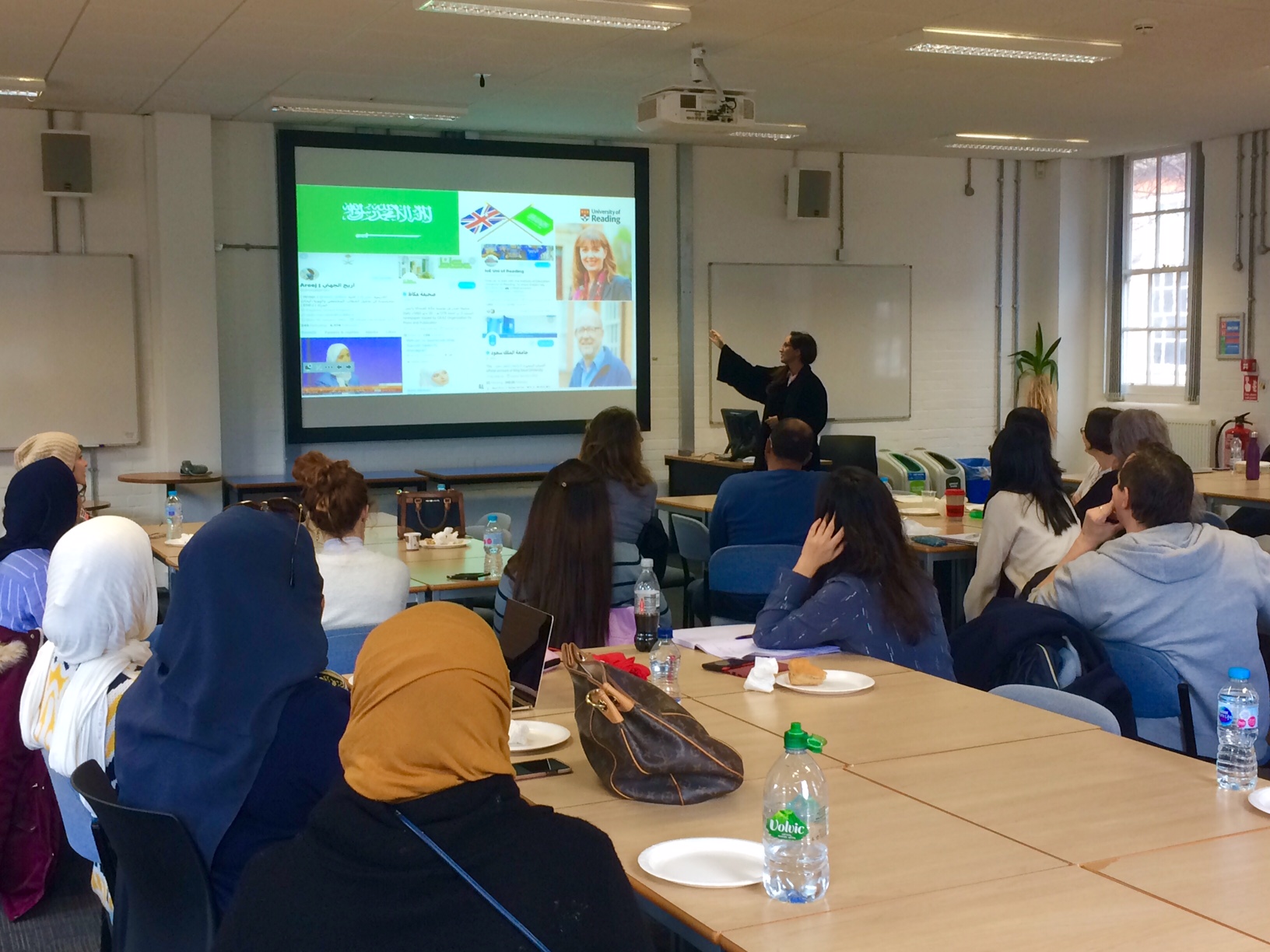The University of Reading’s Institute of Education has a vibrant and inclusive research community and we regularly invite members of our community (both staff and doctoral students) to share their research as part of our lunchtime research seminar series. On Thursday, 28 February 2019, we were pleased to hear research updates from two of our final-year full-time PhD students: Abdulsalam Alfadhel (supervised by Professor Cathy Tissot and Simon Floodgate) and Areej Makki M. Aljahani (supervised by Dr. Karen Jones and Dr. Chris Turner).

In his presentation, titled ‘The social inclusion of deaf students in mainstream schools in Saudi Arabia’, Abdulsalam talked about his research which focuses on social inclusion for deaf students in mainstream schools in Buraydah, Saudi Arabia. The main aim of the study is to explore the understanding and attitude of teachers who teach deaf and mainstream students. The study adopted a qualitative approach, employing document analysis and semi-structured interviews conducted with ten teacher who teach deaf students, eight mainstream school students and eight deaf students.
Among some of his key findings, Abdulsalam found that the participants’ views differed with regard to the social inclusion of deaf students, and that indicated different forms of social inclusion in teachers’ understandings. Some of the key barriers that impede social inclusion include the lack of support from the Ministry of Education and the Department of Education in the local area and the difficulty of the current curriculum.

In her presentation, titled ‘A narrative study of identity and leadership development for empowerment of female academics in higher education sector of the Kingdom of Saudi Arabia’, Areej explained that her research focuses on how women can develop their gendered identities and professional identity.The main aim of this study is to find out relationships between identity, leadership and empowerment and how women can achieve either individual or collective empowerment in the long term. The study include qualitative analyses of narratives of identity, leadership and empowerment journeys of 24 leading female academics working in six selected universities of higher education in the Kingdom of Saudi Arabia.
Among some of her key findings, Areej found that personal and professional goal setting helped nurture professional identity development, and organisational factors, such as work culture and work practices play an important role in developing professional identity.
The event was very well attended by both research staff and doctoral students at the Institute. Details of the Institute’s future lunchtime research seminars can be found here.
We wish both Abdulsalam and Areej the best of luck in their upcoming viva!

